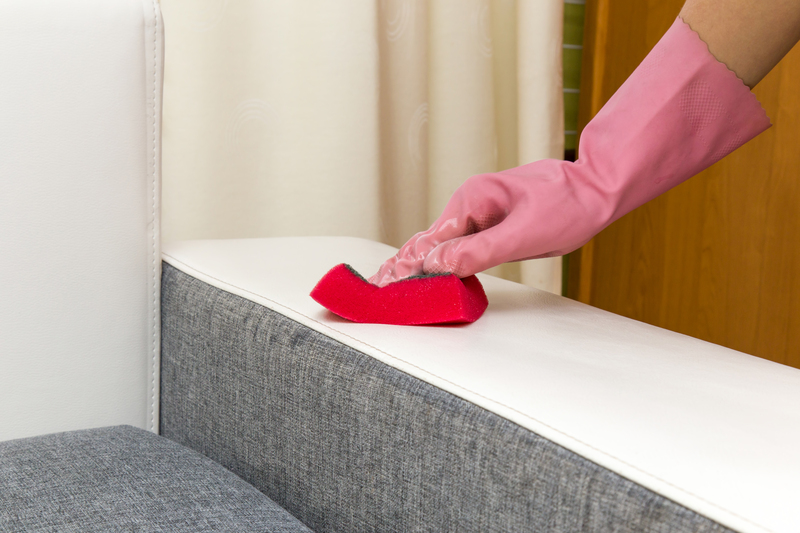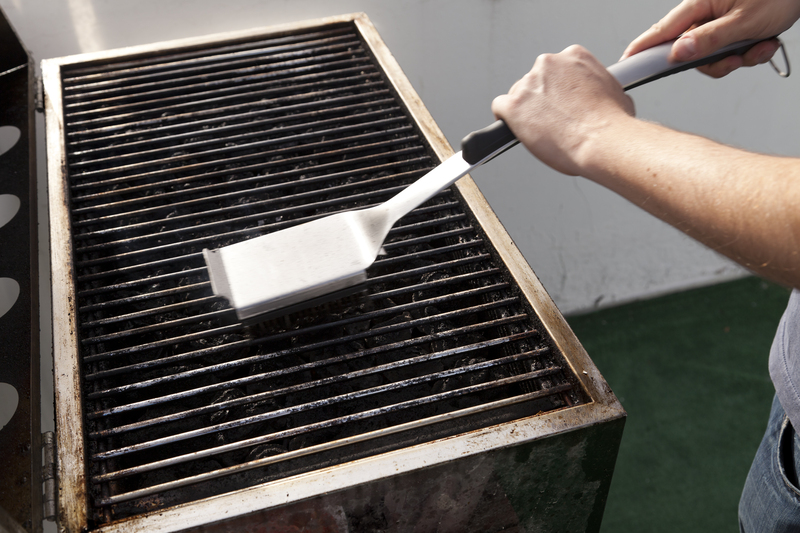Rid Your New Oven of that Smell
Posted on 28/07/2024
Getting a new oven is an exciting experience. It's a key investment in any kitchen and promises the opportunity to bake, roast, and cook delicious meals. However, the joy can be quickly dampened by a common problem--an unpleasant smell that often accompanies a brand-new appliance. This article will help you understand what causes this odor and provide you with practical steps to get rid of it.
Why Does a New Oven Smell?
A new oven smell is typically caused by the burning of insulating materials, protective oils, and other manufacturing residues when the appliance is initially used. These materials are meant to protect the oven during shipping and need to be burnt off before it can be used for cooking.

Steps to Eliminate the Smell
To get rid of the unpleasant odor from your new oven, follow these steps:
Step 1: Read the User Manual
Before doing anything, read through the user manual that comes with the oven. Manufacturers often provide specific instructions on how to properly prepare the oven for its first use.
Step 2: Perform an Initial Burn-In
Most new ovens require a "burn-in" period. Set your oven to a high temperature (around 400?F or 200?C) and let it run empty for 30 minutes to an hour. Ensure good ventilation by opening windows or using an exhaust fan to help dissipate the smell.
Step 3: Clean the Interior
After the burn-in process, allow the oven to cool and then clean the interior thoroughly. Use a mixture of water and mild detergent or a specialized oven cleaner, making sure to get into all corners and crevices.
Natural Odor Absorbers
Sometimes, even after a burn-in and cleaning, the smell can linger. Here are some natural remedies that can help:
Vinegar and Water
Place a heat-resistant bowl filled with equal parts vinegar and water in your oven. Set the oven to a low temperature (around 250?F or 120?C) and let it run for 1-2 hours.
Baking Soda
Sprinkle baking soda on a baking tray and place it in your oven. Set the oven to a low temperature and let it run for about an hour. Baking soda is excellent at absorbing odors.
Commercial Solutions
If natural remedies don't fully do the trick, you might consider using commercial odor absorbers or fresheners designed for kitchen appliances. These can be found at most home improvement or grocery stores.
Post-Cleaning Tips
Maintaining a clean oven is the best way to prevent smells from becoming a problem in the future. Here are some tips:
Regular Cleaning
Make it a habit to clean spills and splatters as soon as the oven cools down. This prevents buildup of residues that can produce unpleasant odors.
Avoid Grease Build-Up
Take measures to reduce grease build-up by using oven liners or trays that catch drips and spills when preparing greasy foods.
Pros and Cons
Let's look at the pros and cons of following these steps:
Pros:
- Ensures your food will not have an unwanted taste or smell.
- Keeps your kitchen environment fresh and pleasant.
- Extends the lifespan of your oven by keeping it clean.
Cons:
- Takes time and effort, especially the initial burn-in and cleaning process.
- Some cleaning products may be required, involving extra costs.

Takeaways
- Understanding why the new oven smell occurs is the first step in eliminating it.
- The initial burn-in process is crucial for removing manufacturing residues.
- Regular maintenance and cleaning can prevent future odors.
Conclusion
The excitement of a new oven shouldn't be marred by unpleasant smells. By taking the necessary steps to perform an initial burn-in, using natural and commercial odor absorbers, and maintaining a clean environment, you can ensure that the oven remains a joy to use. Although these procedures may require time and effort, the benefits, including a fresh kitchen and uncontaminated food, make it well worth the while. Happy cooking!
Latest Posts
Tips for Keeping Wood Floors Spotless
Weekly Cleaning: Top Advantages
Routine Carpet Cleaning: Expert Recommendations



